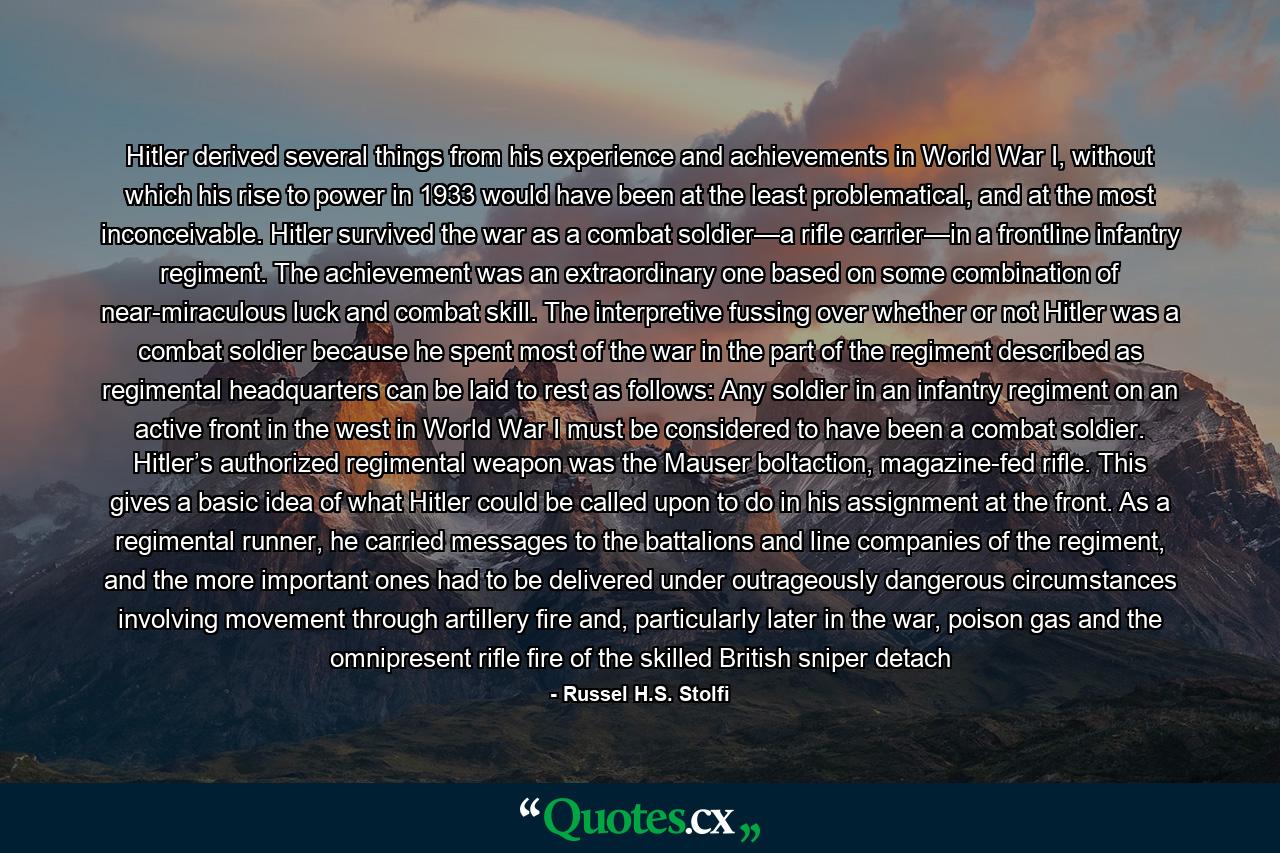Hitler derived several things from his experience and achievements in World War I, without which his rise to power in 1933 would have been at the least problematical, and at the most inconceivable. Hitler survived the war as a combat soldier—a rifle carrier—in a frontline infantry regiment. The achievement was an extraordinary one based on some combination of near-miraculous luck and combat skill. The interpretive fussing over whether or not Hitler was a combat soldier because he spent most of the war in the part of the regiment described as regimental headquarters can be laid to rest as follows: Any soldier in an infantry regiment on an active front in the west in World War I must be considered to have been a combat soldier. Hitler’s authorized regimental weapon was the Mauser boltaction, magazine-fed rifle. This gives a basic idea of what Hitler could be called upon to do in his assignment at the front. As a regimental runner, he carried messages to the battalions and line companies of the regiment, and the more important ones had to be delivered under outrageously dangerous circumstances involving movement through artillery fire and, particularly later in the war, poison gas and the omnipresent rifle fire of the skilled British sniper detach
